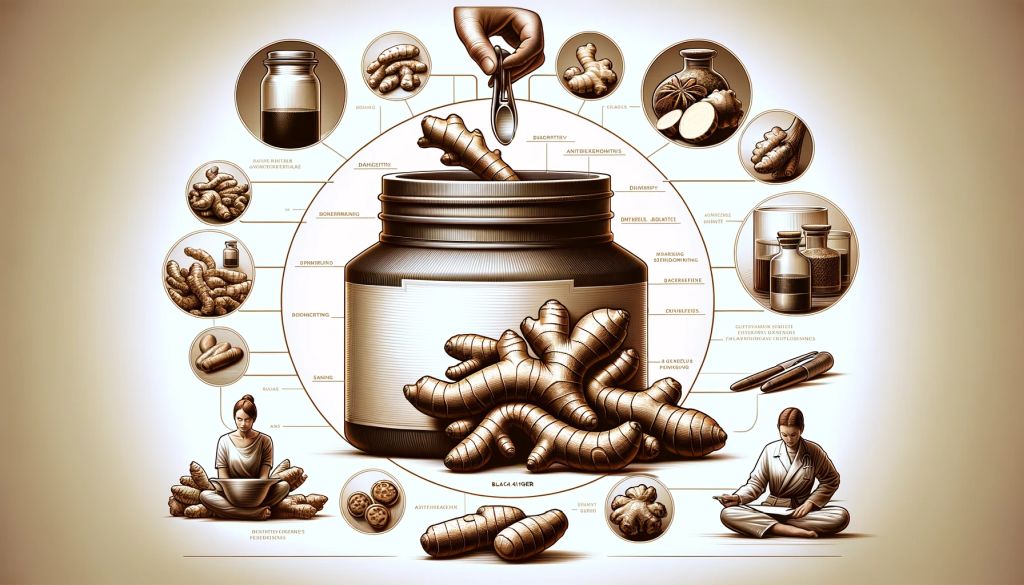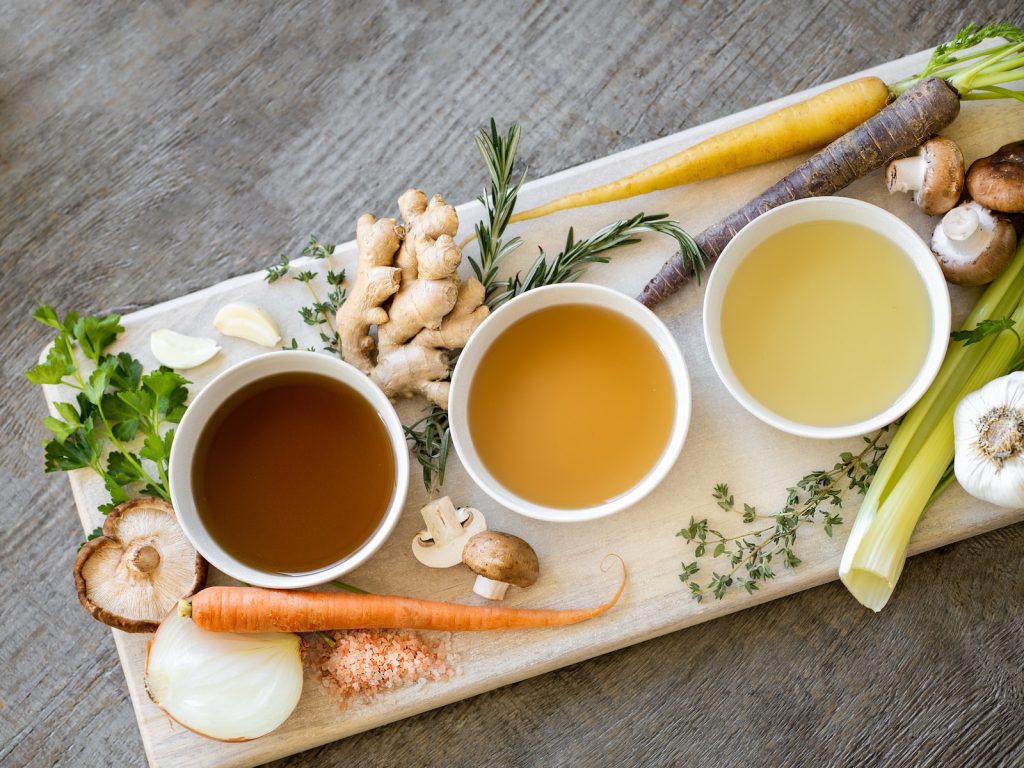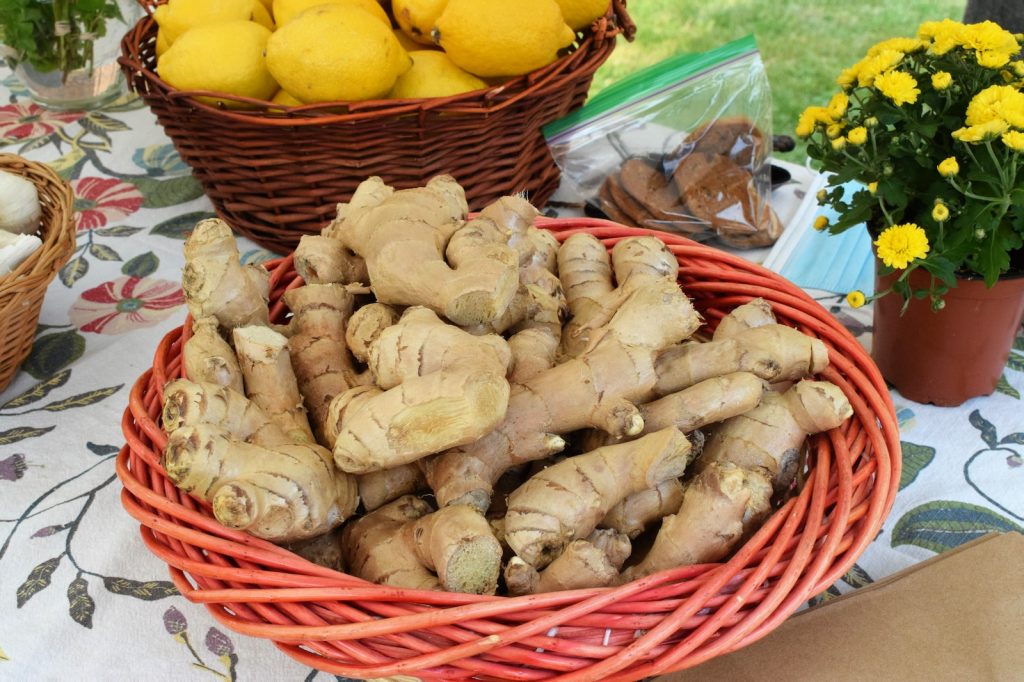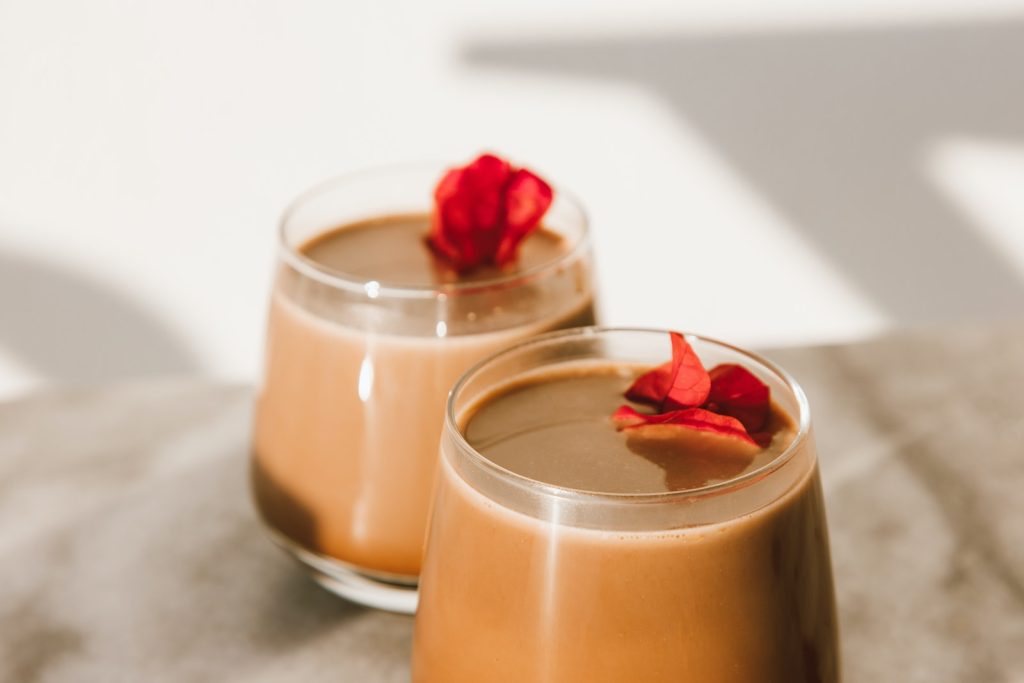
by Health And Healing AI | Jan 5, 2024 | Wellness
Hot Toddy: A Delicious Drink That Can Cure Your Winter Blues

Comforting hot toddy with visible steam, cinnamon, and lemon in a transparent mug.
I’m Elizabeth Redd, the news curator for Health and Healing AI. Today,
I want to share an article from HealthNews that explores hot toddy, a traditional drink many people swear by for cold and flu relief.
Is there any truth to this claim, or is it just a cozy placebo?
The article dives into the science behind hot toddy ingredients, such as honey, lemon, spices, and alcohol, and how they may affect your immune system and symptoms.
You’ll also learn about the history and variations of this soothing concoction and how to make your own at home.
I liked this article because it was informative, engaging, and balanced.
It didn’t make any exaggerated claims or promises, but it didn’t dismiss the potential benefits of a hot toddy.
It gave me a new perspective on this drink and some tips on how to customize it to my liking.
If you’re feeling under the weather or want to warm up on a chilly day, I recommend you check out this article and try a hot toddy for yourself.
You might be surprised by how good it makes you feel. Cheers!
Main Points

Content woman in a snug blanket holding a steaming mug of hot toddy on a cold evening.
What is a Hot Toddy?
- A hot toddy is a drink made with hot water, honey, lemon, spices, and alcohol, usually whiskey, brandy, or rum.
- It is a traditional remedy for colds and flu, especially in the UK, Ireland, and the US.
- It is also a popular winter drink that can warm and relax you.
How does a Hot Toddy work for Colds and Flu?
- A hot toddy may have some benefits for colds and flu, but it is not a cure or a substitute for medical treatment.
- The ingredients of a hot toddy may have some effects on your immune system and symptoms, such as:
- Honey: It can soothe a sore throat, suppress a cough, and act as an antioxidant and anti-inflammatory agent.
- Lemon can provide vitamin C, which may boost immunity and reduce inflammation.
- Spices: They can add flavor and aroma, and some of them, such as ginger, cinnamon, and cloves, may have anti-inflammatory, antiviral, and antibacterial properties.
- Alcohol: It can help you relax and fall asleep, which may improve your recovery. However, it can also dehydrate you, impair your immune system, and interact with some medications. Therefore, you should drink moderately and consult your doctor before drinking alcohol if you are taking any drugs.
- A hot toddy may also work as a placebo, meaning it can make you feel better because you believe it will.
What is the history and variation of a hot toddler?

Warm hot toddy in an Irish mug, offering comfort beside a frosty winter window.
The origin of the hot toddy is unclear, but some possible sources are:
- The name may come from the Hindi word “daddy,” meaning a drink made from palm sap.
- The drink may have been introduced to Britain by the East India Company in the 17th century.
- The drink may have been inspired by a Scottish physician named Robert Bentley Todd, who prescribed a hot drink of brandy, canella, sugar, and water to his patients in the 19th century>
The hot toddy has many variations around the world, such as:
My Biggest Takeaway

A lady is enjoying a warm hot toddy in the cold with a serene snow-covered backdrop.
The biggest takeaway from this article is that a hot toddy is more than a drink. It is a cultural tradition, a natural remedy, and a personal preference.
It may not cure your cold or flu, but it can make you feel better in many ways.
Whether you drink it for its health benefits, taste, or comfort, a hot toddy is a drink you can enjoy and customize.
So, the next time you feel a sniffle or a chill, why not try? You might discover a new favorite drink that keeps you warm and cozy all winter. 🍵
Related Articles From Around The Internet
If you want to learn more about the hot toddy and its effects on colds and flu, you can check out these articles from different sources:
This Hot Toddy Recipe for a Cold Might Be Doctor-Approved1
This article from Taste of Home explains the ingredients and benefits of a classic hot toddy recipe and how it can help you relax and sleep better when you have a cold or flu.
It also gives some tips on customizing your hot toddy with different spices and sweeteners.
Can a hot totty help a cold? Evidence, recipe, and alternatives2
This article from Medical News Today examines the evidence and limitations of using a hot toddy for a cold.
It also provides a simple recipe and some alternatives for people who want to avoid alcohol or honey.
Do hot toddies have medicinal properties? Yes, but alcohol isn’t one3
This article from USA Today interviews experts from the cocktail and medical fields who share their opinions and insights on the hot toddy.
It also discusses the history and variations of the drink and how to enjoy it responsibly.
Here are some related books about hot toddy for cold and flu that you may be interested in:
Related Books About Hot Toddy for Cold and Flu You May Be Interested In

A Sip of Mystery – Uncovering the Lesser-Known Benefits of Hot Toddies. Photo by Alexandra Fuller
The Hot Toddy Book: 50 Recipes to Cure What Ails You
This book by Mr.Sebastian An Gaina Riggsen has 50 recipes for hot toddies; from classic Made with honey, lemon juice, and hot tea, this classic whiskey cocktail is cozy, warming, and bright.
It also includes some history and trivia about the drink and tips on making the hot toddy. Learn about hot toddy! This classic whiskey cocktail is cozy, warm, and bright, made with honey, lemon juice, and hot tea. Check this book out on Amazon.
Hot Toddy Recipes for Cold Relief
The Hot Toddy Recipe Book: 21 Irresistible Hot Toddy Recipes to Warm Your Body and Soul
This book by Alain Duke When the temperature drops, nothing is better than a mug of freshly prepared hot toddy.
The finely curated ingredients bring warmth and comfort, improving a cold day. This drink is well known for its power to warm your soul and comfort you during sick days.
The blend of warmth and spiciness soothes a sore throat and relieves congestion. Check this book out on Amazon.
Hot Toddies: Mulled Wine, Buttered Rum, Spiced Cider, and Other Soul-Warming Winter Drinks
This book by Christopher O’Hara and William A. Nash Hot Toddies: Mulled Wine, Buttered Rum, Spiced Cider, and Other Soul-Warming Winter Drinks.
What could be more delightful than a hot toddy when the weather outside is frightful?
From the scent of nutmeg-laced hot buttered rum to the fizz of a poinsettia cocktail, there’s nothing like a classic winter drink to bring true festivity to the season.
And it’s as easy as pie—whipping eggnog from scratch is much simpler than cooking the perfect turkey, and your guests will appreciate the gesture. Check this book out on Amazon.
The Healing Powers of Tea: A Complete Guide to Nature’s Special Remedy
Wellness in a Cup—Discover the Benefits of Tea for Your Body and Mind!
This book by Cal Orey is a complete guide to the healing powers of tea, a natural remedy that can help with colds, flu, and many other ailments.
It picks you up, calms you down, and refreshes you.
With black, white, red, green, and herbal varieties, there’s a tea for every taste, and now this time-honored superfood is trending as the drink of choice for health-conscious people of all ages and cultures.
This fascinating book boils down the rich history of tea and the ever-expanding list of health and weight loss benefits found in its leaves. Check this book out on Amazon.
The Hot Toddies
This book by Ryland Peters & Small is From festive party punches to cozy bedtime treats; here, you’ll find the perfect winter tipple.
What could be more welcome on a cold, wintry day than a hot drink with a kick?
Whether you prefer a whisky-based toddy, aromatic mulled wine, coffee laced with brandy, or spiced tea, you’ll find a tempting array of tasty and warming treats for every winter occasion in this collection of delicious recipes.
Warming Toddlers and cocktails include hot tea toddler, hot buttered rum, and blue blazer.
Mulls & Punches are perfect when entertaining a crowd – recipes include orange mul red wine, Swedish gloss, and hot rum and cider punch. Nogs & Creamy
Drinks make an indulgent treat – choose from Eg Nog Latte, Honey, Rum, and Spice. Check this book out on Amazon.
This website participates in the Amazon Services LLC Associates Program, an affiliate advertising program designed to provide a means for sites to earn advertising fees by advertising and linking to Amazon.com and il-rated sites. As an Amazon Associate, I earn from qualifying purchases.
Wrap-Up
“The Secret Benefits of a Hot Toddy” delves into the lesser-known advantages of this traditional winter beverage, revealing its impact beyond just being a comforting drink.
Often seen as a simple remedy for cold nights or a soothing balm for the common cold, the hot toddy, a delightful concoction of whiskey, honey, lemon, and spices, holds a treasure trove of health benefits that go unnoticed.
This article uncovers these hidden perks, shedding light on how each ingredient contributes to overall wellness and why this age-old remedy is more than just folklore.
The exploration begins with the core components of a hot toddy.
Whiskey, often the base of the drink, is more than just an alcoholic component; it’s a carrier of antioxidants and has been linked to a reduction in the risk of heart disease when consumed in moderation.
Honey, with its natural antibacterial properties, not only sweetens the drink but also soothes sore throats and boosts the immune system.
Lemon, rich in vitamin C, adds a zesty flavor and fortifies the body’s defenses against colds.
Spices like cinnamon and cloves, often used for their warming properties, bring their anti-inflammatory benefits.
The article provides a comprehensive insight into how these elements synergize, making the hot toddy a potent yet delightful health booster.
Through expert opinions and scientific research, the piece illuminates the surprising ways a hot toddy can contribute to health.
It’s not just a drink for cold nights or a quick remedy for sniffles; it’s a testament to the power of traditional remedies in contemporary health practices.
The article encourages readers to view the hot toddy in a new light, as a beverage that is not only comforting but also beneficial in multiple, often unexpected, ways.
Call to Action: Don’t just read about it; experience it yourself! Join us on this flavorful journey and unlock the hidden health benefits of a hot toddy.
Grab your favorite mug, gather ingredients, and toast to health and wellness.
Click here to dive deeper into the world of articles, discover recipes, and more. Embrace the warmth and wellness today!*
P. S. Still curious about the magic in your mug?
Visit our blog for more insightful articles, expert opinions, and a community of fellow hot toddy enthusiasts.
Let’s explore together the delightful and healthful secrets of these articles. Click here and keep the warmth flowing!*

by Health And Healing AI | Jan 3, 2024 | Health, Wellness
Reveal the Powerful effects of Black Ginger on Health and why it’s a game-changer.

Sophisticated depiction of various black ginger products and their positive impact on health and wellness.
I remember the day I stumbled upon black ginger. It wasn’t just another root in the market but a revelation.
As someone who struggled with chronic fatigue, this was a game-changer. I started adding it to my tea, and within weeks, I felt a surge of energy.
It wasn’t just a fleeting boost; it was transformative. Today, I will share how this potent root can revolutionize your health, from boosting energy to combating inflammation.
Discover the path to a revitalized you, starting with a simple addition to your daily routine.
Black ginger, also known as Kaempferia parviflora, is a herbaceous plant traditionally used in Southeast Asian medicine for its therapeutic properties.
It belongs to the ginger family and has a distinct black or dark brown color, which sets it apart from other ginger varieties.

Unlocking the Health Wonders of Black Ginger – A Closer Look,
This plant is rich in compounds that have been shown to exhibit excellent antioxidant, anti-inflammatory, anti-diabetic, and anti-obesity effects.
Recent studies have examined the potential health benefits of black ginger, and the results have been promising.
This article will explore the many health benefits of black ginger and how it can improve your overall well-being.
From its ability to promote circulation to its potential to boost brain function, you will discover why this herb is gaining popularity in the health and wellness community.
So, let’s dive in and explore the excellent health benefits of black ginger.
Black ginger, known as Kaempferia parviflora or Thai black ginger, offers several potential health benefits.
It has been linked to improved physical fitness performance, muscular endurance, and reduced fatigue by improving inflammation and energy metabolism PMC – NCBI (https://www.ncbi.nlm.nih.gov/pmc/articles/PMC4946221/).
Additionally, black ginger is rich in amino acids, selenium, and antioxidants such as tannins, anthocyanins, and flavonoids, which contribute to its potential health benefits BuyNatural (https://buynatural.com.au/magazine/health-magazine/the-secret-healing-powers-of-black-ginger-unlocking-a-treasure-trove-of-health-benefits/).
Furthermore, it has been associated with improved energy, lower fatigue, enhanced glucose metabolism, and antioxidant properties Ujido (https://ujido.com/blogs/matcha-insider/9-powerful-health-benefits-of-black-ginger).
Historical and Traditional Uses

Exploring the Unknown – The Unique Properties of Black Ginger.
Black ginger has a rich history of use in traditional medicine and culinary practices.
In Thailand, black ginger is known as “Krachaidam” and has been used for centuries to treat various ailments.
Traditional Medicine

Depiction of black ginger’s anti-inflammatory benefits in traditional remedies.
In traditional medicine, black ginger is believed to have numerous health benefits.
It is commonly used to treat digestive issues such as bloating, gas, and indigestion.
It is also believed to have anti-inflammatory properties and can be used to alleviate pain and swelling.
Some studies have even suggested that black ginger may have anticancer properties.
Culinary Uses
Black ginger is also a popular spice in Thai cuisine. It is commonly used to flavor soups, curries, and stir-fries.
It has a slightly sweet and spicy flavor that pairs well with other traditional Thai ingredients, such as lemongrass, galangal, and kaffir lime leaves.
In addition to its culinary uses, black ginger is also used to make a popular Thai herbal drink called “Krachaidam tea.”
This tea is believed to have numerous health benefits and is commonly consumed after meals to aid digestion.
Overall, black ginger has a long history of use in traditional medicine and culinary practices in Thailand.
While more research is needed to understand its health benefits entirely, it is clear that black ginger has a unique flavor and potential health benefits that make it a valuable addition to any diet.
Active Compounds and Antioxidant Properties

Unlocking Wellness – The Undiscovered Health Potentials of Black Ginger. Photo by Bluebird Provisions
Black ginger is a unique herb that is rich in bioactive compounds. These compounds are responsible for the herb’s therapeutic properties.
The bioactive compounds present in black ginger include flavonoids, gingerol, and other antioxidants.
These compounds have potent antioxidant effects that protect the body from free radicals and oxidative stress.
Bioactive Compounds
Black ginger contains several bioactive compounds that contribute to its therapeutic properties. One of the most important bioactive compounds found in black ginger is gingerol.
Gingerol is a potent antioxidant shown to have anti-inflammatory and anticancer properties.
It is also known to have beneficial effects on cardiovascular health and can help to lower blood pressure.
In addition to gingerol, black ginger contains several other bioactive compounds, such as flavonoids.
Flavonoids are a group of compounds that have potent antioxidant effects and are known to have anti-inflammatory properties.
They also benefit cardiovascular health and help lower heart disease risk.
Antioxidant Effects
The antioxidant effects of black ginger are due to the presence of several bioactive compounds, such as gingerol and flavonoids.
These compounds have potent antioxidant effects that protect the body from free radicals and oxidative stress.
Free radicals are unstable molecules that can cause damage to cells and tissues in the body.
They are produced due to normal metabolic processes and exposure to environmental toxins such as pollution and cigarette smoke.
Antioxidants such as those found in black ginger help neutralize toxins and prevent them from causing damage to cells and tissues.
In addition to their antioxidant effects, the bioactive compounds found in black ginger are also known to have anti-inflammatory properties.
Inflammation is a natural response of the body to injury or infection.
However, chronic inflammation can lead to a variety of health problems, such as heart disease, diabetes, and cancer.
The anti-inflammatory properties of black ginger can help to reduce inflammation in the body and lower the risk of these health problems.
In conclusion, black ginger is a unique herb rich in bioactive compounds such as gingerol and flavonoids.
These compounds have potent antioxidant effects that protect the body from free radicals and oxidative stress.
They also have anti-inflammatory properties that can help reduce the risk of various health problems.
Potential Health Benefits
Black ginger offers a range of potential health benefits that can help you maintain good health.
Here are some of the most significant benefits of black ginger:
Anti-inflammatory and Pain Relief
Black ginger is rich in anti-inflammatory compounds that can help relieve pain and inflammation.
According to a study published on Healthy Focus, black ginger contains compounds that exhibit excellent antioxidant effects and antimicrobial, anti-diabetic, anti-obesity, and anti-inflammatory benefits.
These properties make it a beneficial natural remedy for managing pain and inflammation associated with arthritis and osteoarthritis.
Digestive Health
Black ginger has been used traditionally as a digestive aid. It contains compounds that can help soothe the digestive system, reduce nausea, and improve digestion.
According to Pangbenta.com, black ginger can reduce inflammation in the gut, which can help alleviate digestive issues such as bloating, indigestion, and constipation.
Blood Sugar and Diabetes Management
Black ginger may also help regulate blood sugar levels, making it a beneficial natural remedy for managing diabetes.
According to Gingerfacts.com, black ginger is rich in antioxidants, which can help protect your cells from damage caused by free radicals.
It also contains flavonoids, which have anti-diabetic properties and can help regulate blood sugar levels.
Cardiovascular Health
Black ginger may also have benefits for heart health.
According to a study published on Sturmeric.com, black ginger contains bioactive compounds that can help improve blood flow and reduce the risk of heart disease.
These compounds can also help reduce inflammation, significantly contributing to heart disease.
Sexual Health and Performance

o An infographic summarizing the health benefits of black ginger tea.
Black ginger is a natural remedy that has been traditionally used in Thailand to treat sexual dysfunction and boost sexual performance.
The plant has been found to possess aphrodisiac effects that can enhance sexual desire and improve sexual function.
Aphrodisiac Effects
Black ginger may have aphrodisiac effects due to its ability to increase testosterone levels.
Testosterone is a hormone that plays a crucial role in sexual desire and performance.
According to a pilot study published in the Journal of Alternative and Complementary Medicine, black ginger extract was found to increase testosterone levels in men, which may lead to improved sexual function and performance.
Erectile Dysfunction
Erectile dysfunction is a common condition that affects many men.
It is characterized by the inability to achieve or maintain an erection during sexual activity. Black ginger may help alleviate erectile dysfunction by improving blood flow to the penis.
It is due to its ability to stimulate nitric oxide production, a compound that helps relax blood vessels and improve blood flow.
According to a pilot study published in the journal Andrologia, black ginger extract was found to improve erectile function in older men.
The study found that the extract improved penile rigidity, duration of erection, and sexual satisfaction.
In conclusion, black ginger may have a positive effect on sexual health and performance due to its aphrodisiac effects and ability to improve erectile function.
While more research is needed to understand the plant’s effects on sexual health fully, the available evidence suggests that black ginger may be a promising natural remedy for sexual dysfunction.
Weight Management and Metabolic Health

Informative depiction of obesity’s global links to diabetes, heart disease, and cancer.
Black ginger has been found to have potential benefits for weight management and metabolic health. This section will explore the current research on the topic.
Obesity and Fat Loss
Obesity is a significant health concern worldwide and is associated with a range of health problems, including type 2 diabetes, heart disease, and certain cancers.
Research suggests that black ginger may have potential as a natural weight loss aid.
A study published in the Journal of Medicinal Food found that black ginger extract reduced body weight and body fat in obese mice.
The researchers suggested that this effect may be due to black ginger’s ability to increase energy expenditure and fat oxidation.
Energy Expenditure and Brown Adipose Tissue
Black ginger has also been found to have potential benefits for energy expenditure and brown adipose tissue (BAT) activation.
BAT is a type of fat that burns calories to generate heat and has been suggested as a target for obesity treatment.
A study published in the Journal of Nutritional Science and Vitaminology found that black ginger extract increased energy expenditure and activated BAT in mice.
The researchers suggested that black ginger may have potential as a natural treatment for obesity and related metabolic disorders.
In summary, black ginger may benefit weight management and metabolic health.
While more research is needed to understand its effects fully, the current evidence suggests that black ginger may be a helpful tool for those looking to lose weight or improve their metabolic health.
Safety Profile and Precautions

A close-up image of black ginger root against a white background, highlighting its unique texture and color. Photo by Jen Upen
Black ginger is generally safe for consumption, but there are some precautions you should take to avoid potential side effects or drug interactions.
Possible Side Effects
Consuming black ginger in high doses may cause some side effects, such as heartburn, stomach upset, and diarrhea.
It would help to start with a small dose and gradually increase it to avoid discomfort.
If you experience any adverse effects, stop taking black ginger and consult your doctor.
Drug Interactions
Black ginger may interact with certain medications, including blood thinners and medications for high blood pressure.
If you take prescription medications, consult your doctor before taking black ginger.
Precautions
If you have a known allergy to ginger, you should avoid black ginger.
Additionally, if you are scheduled for surgery, you should stop taking black ginger at least two weeks before the surgery to reduce the risk of bleeding.
It is always recommended that you consult your doctor before taking any new supplements, especially if you have a pre-existing medical condition or are taking prescription medications.
Your doctor can help you determine if black ginger is safe for you to take and can advise you on the appropriate dosage.
Supplementation Forms
Black ginger can be consumed in various forms, including supplements, tea, and powder.
Supplements are available in capsule form and contain concentrated amounts of black ginger extract.
Ginger tea can be made by steeping fresh or dried black ginger root in hot water for several minutes.
Black ginger powder can be added to smoothies, juices, or food.
Dosage and Administration
There is no established recommended dosage for black ginger. However, most studies have used 100 to 2000 mg daily doses.
Following the instructions on the supplement label or consulting a healthcare professional before taking black ginger supplements is essential.
When making ginger tea, it is recommended to use 1-2 teaspoons of fresh or dried black ginger root per cup of hot water.
Black ginger powder can be added to food or drinks in small amounts, usually 1-2 teaspoons per serving.
It is important to note that black ginger may interact with certain medications, including blood thinners and diabetes medications.
Therefore, consulting a healthcare professional before taking black ginger supplements or consuming large amounts is essential.
Overall, black ginger can be a beneficial addition to a healthy diet and lifestyle. However, it is essential to use caution and follow recommended dosage guidelines.
Frequently Asked Questions
What are the potential skin benefits of taking black ginger?
Black ginger extract might help prevent a psoriasis flare-up before it starts.
Psoriasis is a chronic autoimmune condition that causes skin cell buildup, resulting in skin scaling.
Black ginger is also rich in antioxidants, which help protect your cells from damage caused by free radicals.
Free radicals are unstable molecules that can damage your DNA and contribute to a variety of chronic health conditions, including cancer, heart disease, and Alzheimer’s disease.
How should black ginger be consumed for optimal health benefits?
Black ginger can be consumed in various forms, such as tea, capsule, or powder.
The most common way to consume black ginger is by brewing it as a tea. Add black ginger powder to your smoothies or sprinkle it on your food.
The recommended dosage of black ginger varies based on the form of consumption and the intended health benefit.
Can black ginger assist in managing diabetes?
Black ginger has been found to have anti-diabetic properties. It might help to lower blood glucose levels and improve insulin sensitivity.
However, more research is needed to confirm its effectiveness in managing diabetes.
What is the recommended daily dosage of black ginger for weight loss?
There is no specific recommended daily dosage of black ginger for weight loss.
However, studies have shown that consuming 1 gram of black ginger can help reduce body weight and fat percentage.
Are there any known side effects associated with the consumption of black ginger?
Black ginger is generally safe for consumption when taken in recommended dosages.
However, some people might experience mild side effects such as stomach upset, diarrhea, and nausea.
It is recommended to consult with a healthcare professional before consuming black ginger, especially if you are pregnant, breastfeeding, or have any underlying health conditions.
Does black ginger have an impact on testosterone levels?
Black ginger has been touted as an aphrodisiac and glucose support agent, with its effects on testosterone and aphrodisia relatively unresearched.
Research has shown that black ginger might slightly impact testosterone levels. However, more research is needed to confirm its effectiveness.
Conclusion
Black ginger is a natural root used for centuries in traditional medicine to treat various ailments.
Recent studies have shown that black ginger contains several compounds with excellent antioxidant and antimicrobial, anti-diabetic, anti-obesity, and anti-inflammatory benefits.
Incorporating black ginger into your diet may provide several health benefits, including improved digestion, reduced inflammation, and enhanced cognitive function.
Additionally, black ginger may help regulate blood sugar levels, reduce the risk of heart disease, and improve exercise performance.
While black ginger is generally considered safe, it is always essential to consult with a healthcare professional before making any significant changes to your diet or supplement routine.
If you experience any adverse reactions or side effects after consuming black ginger, discontinue use immediately and seek medical attention.
In conclusion, black ginger is a natural root with potential health benefits. Incorporating black ginger into your diet may help improve your overall health and well-being.
Wrap-Up

Historical depiction of Kaempferia parviflora as a natural remedy in Southeast Asia.
The article “Health Benefits of Black Ginger” delves into this unique root’s remarkable and often underappreciated advantages.
Black ginger, known scientifically as Kaempferia parviflora, has been a cornerstone in traditional medicine for centuries, particularly in Southeast Asia.
The piece begins by exploring the historical context of black ginger’s use, underscoring its longstanding reputation as a natural remedy.
As the article progresses, it systematically unpacks the myriad health benefits attributed to black ginger.
It highlights its potent anti-inflammatory and antioxidant properties, crucial in combating various chronic diseases and aging processes.
The author discusses recent scientific studies that reveal how black ginger positively affects endurance, muscle health, and energy levels, making it a valuable supplement for athletes and fitness enthusiasts.
Additionally, the article touches on the root’s impact on metabolic health, including its potential in managing weight and improving insulin sensitivity.
This comprehensive overview not only educates readers about the health benefits of black ginger but also emphasizes its emerging role in modern wellness and nutrition.
Call to Action: Are you ready to unlock the secret to a healthier, more vibrant you?
Dive into the world of black ginger and discover its excellent benefits for yourself!
Don’t just read about it – experience the change. Click here to learn more and start your journey towards better health and well-being with black ginger today!”
P. S. Curious about how black ginger can revolutionize your health?
Visit our website for exclusive content, expert insights, and a closer look at the incredible power of this ancient remedy. Your path to wellness starts here!“

by Health And Healing AI | Oct 14, 2023 | Health, Wellness
Discover the Delicious Path to Wellness with Cocoa Powder in Coffee
How Cocoa Powder in Coffee Boosts Wellness
As a coffee lover, I always look for new and exciting ways to enjoy my daily cup of joe.
One trend that has caught my attention is the addition of cocoa powder to coffee. Not only does it add a delicious chocolatey flavor, but it also comes with a host of potential health benefits.
Cocoa powder is rich in flavanols, powerful antioxidants that can help protect against heart disease and lower blood pressure.
When combined with coffee, the flavanols in cocoa may also help to improve cognitive function and reduce inflammation in the body.
Additionally, cocoa powder is a good magnesium source for maintaining healthy bones and muscles.
While it’s important to note that adding cocoa powder to your coffee won’t magically transform it into a healthy drink, it can be a tasty way to incorporate some potential health benefits into your daily routine.
So, if you want to switch up your coffee game and add a little chocolatey goodness to your day, try cocoa powder in coffee!
What is Cocoa Powder?

Delicious Combination: Coffee and Cocoa Powder. Photo by Nathan Dumlao
Cocoa powder is a popular ingredient in many recipes, including hot chocolate, baked goods, and coffee.
It is made from cocoa beans from the Theobroma cacao tree. The beans are harvested, fermented, and dried before being roasted and ground into a fine powder.
Cocoa powder comes in two varieties: natural and Dutch-processed. Natural cocoa powder is made from cocoa beans that have been roasted and ground into a fine powder.
On the other hand, Dutch-processed cocoa powder is treated with an alkaline solution to neutralize its acidity. This process results in a darker color and a milder flavor.
Cocoa powder is a rich source of flavonoids; natural compounds were shown to have antioxidant properties.
These compounds may help protect against heart disease, stroke, and cancer.
Cocoa powder is also high in magnesium, essential for maintaining healthy bones and muscles.
When added to coffee, cocoa powder can give it a delicious chocolatey flavor.
It can also provide several health benefits, such as reducing inflammation and improving brain function.
Additionally, cocoa powder may help lower blood pressure and improve cholesterol levels.
Overall, cocoa powder is a versatile and nutritious ingredient that can be used in various recipes.
Whether making hot chocolate, baking a cake, or adding it to your morning coffee, cocoa powder is a delicious and healthy choice.
Cocoa Powder and Coffee: A Match Made in Heaven
How Cocoa Powder in Coffee Boosts Wellness: I love coffee, and I also love chocolate. So naturally, I was curious about combining the two. I discovered that cocoa powder and coffee make a perfect match.
Not only does it taste delicious, but it also has some surprising health benefits.
Enhances the Flavor
Adding cocoa powder to your coffee is an effortless way to enhance the flavor of your favorite brew.
It creates a D.I.Y. mocha at home and brings out the unique notes in the coffee without losing its flavor. It’s a healthier alternative to sweetened coffee drinks.
Rich in Antioxidants
Cocoa powder is rich in antioxidants, which are beneficial to our health. Antioxidants help to protect our cells from damage caused by free radicals.
They also help to reduce inflammation in our bodies.
Boosts Energy and Focus
Coffee is known for its ability to boost energy and improve focus. Cocoa powder contains caffeine and theobromine, which are also known to have similar effects.
Combining the two can provide an extra boost of energy and focus.
How to Prepare Cocoa Powder Coffee
There are several ways to prepare cocoa powder coffee. Mix cocoa powder with ground coffee before brewing, add it to your brewed coffee, or prepare it as a cocoa paste. You can also brew it into a cold brew for a refreshing summer drink.
Conclusion
Cocoa powder and coffee are a match made in heaven. Not only does it taste great, but it also provides some surprising health benefits.
Try it and see how delicious and beneficial it can be.
Health Benefits of Cocoa Powder in Coffee

The Ultimate Coffee Upgrade: Cocoa Powder’s Surprising Benefits. Photo by ROMAN ODINTSOV
I love adding cocoa powder to my coffee, not just because it tastes delicious!
There are several health benefits of combining cocoa powder and coffee that make it a great addition to my morning routine.
Antioxidants for Heart Health
Cocoa powder is rich in antioxidants, which can help protect your heart from damage caused by free radicals.
Combined with coffee, which is also high in antioxidants, you get a double dose of heart-healthy benefits.
Lower Risk of Heart Disease
Studies have shown that consuming cocoa powder can lower your risk of heart disease by improving blood flow and reducing inflammation. This is because cocoa powder contains flavanols, which can help relax blood vessels and improve circulation.
Improved Blood Sugar Control
Cocoa powder also has the potential to improve blood sugar control, which is essential for those with diabetes. It can help regulate insulin sensitivity and reduce the risk of insulin resistance.
Boost of Energy and Mood
How Cocoa Powder in Coffee Boosts Wellness: Coffee contains caffeine, a natural stimulant that can help boost energy and improve mood. When combined with cocoa powder, which contains theobromine, a natural mood enhancer, you get a powerful combination that can help you start your day.
Anti-Inflammatory Properties
Cocoa powder has anti-inflammatory properties, which can help reduce inflammation and improve cardiovascular health. It is important because chronic inflammation is linked to several health issues, including heart disease and diabetes.
Lower Blood Pressure
Studies have also shown that consuming cocoa powder can help lower blood pressure, essential for those with hypertension. The flavanols in cocoa powder can help relax blood vessels and improve circulation.
Adding cocoa powder to your coffee can provide several health benefits, including improved heart health, better blood sugar control, and a boost of energy and mood.
So why not try it and see how it can benefit you?
Nutritional Value of Cocoa Powder
As a coffee lover, I always wondered about the nutritional value of cocoa powder.
After researching, I discovered that cocoa powder is rich in many essential nutrients that can benefit our health. In this section,
I will discuss the nutritional value of cocoa powder and how it can contribute to our daily nutrient intake.
Calories and Macronutrients
Cocoa powder is low in calories, with one tablespoon containing only 12 calories. It is also low in fat, with only 0.7 grams per tablespoon, making it a great addition to a low-fat diet.
Cocoa powder also contains some protein, with one tablespoon providing 0.6 grams. However, it is not a significant source of fiber or carbohydrates.
Vitamins and Minerals
Cocoa powder is a reliable source of minerals, especially iron, magnesium, and zinc.
One tablespoon of cocoa powder contains 0.4 milligrams of iron, about 5% of adults’ recommended daily intake.
The mineral is found in cocoa powder, with one tablespoon providing 24 milligrams, or about 6% of adults’ recommended daily intake. Zinc is also in lesser amounts, with one tablespoon containing 0.1 milligrams.
Cocoa powder also contains some vitamins, including vitamin B6 and vitamin K.
One tablespoon of cocoa powder provides 0.01 milligrams of vitamin B6, about 1% of adults’ recommended daily intake.
Vitamin K is also in lesser amounts, with one tablespoon containing 0.1 micrograms.
Other Nutrients
Cocoa powder also contains some other nutrients, including antioxidants and flavonoids.
These compounds have been linked to various health benefits, such as improved heart health and decreased inflammation.
Cocoa powder also contains caffeine, boosting energy and improving mental alertness.
In conclusion, cocoa powder is a nutrient-dense ingredient with many health benefits. It is low in calories and fat but rich in minerals like iron, magnesium, and zinc.
Cocoa powder also contains antioxidants and flavonoids, which can improve heart health and decrease inflammation.
Adding cocoa powder to your coffee can be a delicious and healthy way to enjoy your morning cup of joe.
Cocoa Powder and Disease Prevention
I love adding cocoa powder to my coffee because it tastes delicious and has numerous health benefits.
One of the most significant benefits of cocoa powder is its potential to prevent diseases.
Blood Sugar and Type 2 Diabetes
Studies have shown that cocoa powder can improve insulin sensitivity and reduce blood sugar levels. It is excellent news for those at risk of developing type 2 diabetes. By adding cocoa powder to your coffee, you could help to prevent this disease.
Inflammation
Inflammation is a natural response to injury or infection, but chronic inflammation can lead to various health problems.
The powder contains flavonoids, which have anti-inflammatory properties. By consuming cocoa powder regularly, you may be able to reduce inflammation in your body.
Cancer
Cocoa powder is also rich in antioxidants, which can help to prevent cancer. Antioxidants neutralize free radicals, which can damage cells and increase cancer risk.
By adding cocoa powder to your coffee, you could be giving your body the protection it needs.
Degenerative Diseases
Cocoa powder has been shown to have neuroprotective effects, which means it can protect the brain from degenerative diseases like Alzheimer’s and Parkinson’s.
The flavonoids in cocoa powder can improve blood flow to the brain and reduce inflammation, which can help to prevent these diseases.
Colon Cancer
Colon cancer is one of the most common types of cancer, but cocoa powder may be able to help prevent it.
Studies have shown that cocoa powder can reduce the growth of cancer cells in the colon.
By adding cocoa powder to your coffee, you could reduce your risk of developing colon cancer.
Stroke
Finally, cocoa powder may be able to reduce the risk of stroke.
Studies have shown that cocoa powder can improve blood flow and reduce the risk of blood clots, which can lead to stroke.
By consuming cocoa powder regularly, you could be protecting your brain from this severe condition.
Adding cocoa powder to your coffee can have numerous health benefits, including disease prevention. Consuming cocoa powder could protect your body from many health problems.

Exploring the antioxidants in cocoa powder coffee. Photo by Birlokomotif
The Role of Antioxidants in Cocoa Powder
How Cocoa Powder in Coffee Boosts Wellness: As a coffee lover, I always look for ways to enhance my morning cup of joe. One ingredient that has caught my attention lately is cocoa powder.
Not only does it add a rich, chocolatey flavor to my coffee, but it also offers a host of health benefits.
One of the critical components of cocoa powder that makes it so beneficial is its high antioxidant content.
Antioxidants are compounds that help to protect our cells from damage caused by harmful molecules called free radicals.
When free radicals accumulate in our bodies, they can cause oxidative stress, linked to various health problems, including cancer, heart disease, and Alzheimer’s disease.
Cocoa powder is particularly rich in a type of antioxidant called flavanols.
Flavanols are a type of polyphenol, a group of compounds found in plants with antioxidant properties. Cocoa powder contains more flavanols per gram than most other foods, including red wine and green tea.
Research has shown that consuming cocoa flavanols may have various health benefits, including improving heart health, reducing inflammation, and improving brain function.
One study even found that consuming cocoa flavanols for just five days improved blood flow to the brain, which could have implications for cognitive function.
However, it’s important to note that not all cocoa products are created equal.
Processing can significantly reduce cocoa powder’s flavanol content, so choosing a high-quality, minimally processed product is essential.
Look for cocoa powder labeled as “natural” or “non-alkalized,” as these products will have a higher flavanol content.
In summary, cocoa powder is a great way to add flavor and health benefits to your morning cup of coffee.
Its high antioxidant content, particularly its flavanol content, may help protect against various health problems, including heart disease and Alzheimer’s.
Just choose a high-quality product to ensure you get the most benefits possible.
The Taste of Cocoa Powder in Coffee
I love trying assorted flavors in my coffee; cocoa powder is one of my favorites.
It adds a slightly bitter, chocolatey flavor to my unique and delicious coffee. The combination of coffee and cocoa powder is often called a mocha, a popular choice for coffee lovers worldwide.
When adding cocoa powder to your coffee, it’s important to note that a little goes a long way.
Too much cocoa powder can make your coffee overly sweet and bitter, so it’s best to start with a small amount and gradually increase it until you find the perfect balance.
You can also experiment with adding other flavors to your coffee along with the cocoa powder.
Cinnamon is a popular choice, and both Ceylon and Cassia cinnamon can add a warm, spicy flavor to your coffee that complements the bitterness of the cocoa powder.
Adding cocoa powder to your coffee is a great way to switch up your daily routine and enjoy a delicious, flavorful cup of coffee.
With its unique taste and added health benefits, it’s no wonder why so many people love this combination.
How to Add Cocoa Powder to Your Coffee
I love adding cocoa powder to my coffee to give it an extra flavor kick and a sweet touch. Here are a few ways to add cocoa powder to your coffee:
1. Choose the Right Cocoa Powder
Choosing the suitable cocoa powder is essential when adding cocoa powder to your coffee. Unsweetened cocoa powder is the best option, as it doesn’t contain added sugar. Look for cocoa powder labeled as “natural” or “unsweetened” to ensure it contains no added sugar.
2. Determine the Right Serving Size
The cocoa powder you add to your coffee will depend on your taste preferences. Start with a small amount (around one teaspoon) and gradually increase until you reach your desired level of sweetness.
3. Mix the Cocoa Powder with Sugar
If you prefer your coffee to be sweeter, you can mix the cocoa powder with sugar before adding it to your coffee. It will give your coffee a sweet, chocolatey flavor without being too overpowering.
4. Add the Cocoa Powder to Your Coffee
Once you’ve determined the correct serving size and mixed the cocoa powder with sugar (if desired), it’s time to add the cocoa powder to your coffee. Sprinkle the cocoa powder over your coffee and stir until it’s well combined.
Adding cocoa powder to your coffee is a great way to give it a boost of flavor and a touch of sweetness.
Choose unsweetened cocoa powder and determine the right serving size for your taste preferences.
Potential Side Effects of Cocoa Powder
While cocoa powder in coffee can provide several health benefits, it is essential to be aware of its potential side effects. Here are some of the things you should keep in mind:
Caffeine Content
Cocoa powder contains caffeine, a stimulant that can cause restlessness, nervousness, and difficulty sleeping.
If you are sensitive to caffeine, limiting your intake of cocoa powder in coffee is best. The amount of caffeine in cocoa powder can vary depending on the brand and the processing method.
For example, Dutch-processed cocoa powder has a lower caffeine than natural cocoa powder.
Theobromine Content
Theobromine is another stimulant found in cocoa powder. It is similar to caffeine but has a milder effect.
However, consuming large amounts of theobromine can cause side effects such as nausea, vomiting, and headaches.
Theobromine can also have a diuretic effect, which can cause dehydration if you do not drink enough fluids.
Adverse Side Effects
Consuming large amounts of cocoa powder can cause adverse side effects such as stomach upset, diarrhea, and bloating.
These side effects are more likely to occur if you have a sensitive digestive system or consume cocoa powder in enormous quantities.
Additionally, some people may be allergic to cocoa powder, which can cause symptoms such as hives, itching, and difficulty breathing.
It is important to note that cocoa powder in coffee is safe for most people when consumed in moderation.
However, if you experience adverse side effects, you should stop consuming cocoa powder and consult your healthcare provider.
Conclusion
Incorporating cocoa powder into your coffee can be a great way to add health benefits to your morning routine.
Cocoa is rich in flavanols, solid antioxidants, and anti-inflammatory agents that can help lower blood pressure and decrease the risk of stroke and heart attack.
Additionally, flavanols can improve symptoms associated with type 2 diabetes and protect against cancer.
Not only does cocoa have health benefits, but it also adds a delicious chocolate flavor to your coffee.
Adding cocoa powder can be a great option if you’re looking for an alternative to sugar and cream. Just be sure to choose unsweetened cocoa powder to avoid added sugars.
When adding cocoa powder to your coffee, start with a small amount and adjust to your taste preferences.
You can also experiment with diverse types of cocoa powder, such as cacao powder, which is exceptionally nutrient-dense and offers many ways to increase wellness and energy.
Incorporating cocoa powder into your coffee can be a simple and tasty way to improve your health while enjoying your morning cup of joe. Try it and see how it works for you!

by Health And Healing AI | Aug 2, 2023 | Self-Care, Wellness
Herbal Remedies for Common Ailments
Herbal remedies have been used for centuries to treat common ailments, and with good reason.
Nature provides us with many plants and herbs that can help alleviate symptoms and promote
healing without the harsh side effects of synthetic drugs. There is an herbal remedy for almost
every ailment, from headaches to digestive issues.
Many people are turning to herbal remedies as a natural alternative to traditional medicine. With
the rising cost of healthcare and concerns over the safety of prescription drugs, it’s no wonder
that more and more people are seeking natural remedies. In addition to being more affordable,
herbal remedies are often gentler on the body and can be used with other treatments. This article
will explore some of the most effective herbal remedies for common ailments and how they can
promote healing and well-being.
Understanding Herbal Remedies
Herbal remedies have been used for centuries as a natural way to treat common ailments. They
are derived from plants and other natural sources and can be found in various forms, such as teas,
tinctures, capsules, and creams. Herbal remedies are often more accessible and affordable than
traditional medicine, making them attractive for those seeking natural remedies.Herbal medicine utilizes the active ingredients found in plants to promote healing and alleviate
symptoms. These active ingredients can be found in different plant parts, such as leaves, stems,
roots, and flowers. When used correctly, herbal remedies can be a safe and effective way to treat
various ailments.
It is important to note that herbal remedies do not replace traditional medicine and should not be
used as a sole treatment for severe medical conditions. However, they can be used with
traditional medicine to enhance the healing process.
When using herbal remedies, it is essential to understand each remedy’s potential risks and
benefits. Some herbs may interact with prescription medications or have side effects that can be
harmful. It is always recommended to consult with a healthcare professional before starting any
herbal remedy.
In conclusion, herbal remedies can be a natural and accessible way to treat common ailments.
However, it is essential to use them safely and responsibly. By understanding the benefits and
risks of each remedy, individuals can incorporate herbal medicine into their healthcare routine to
promote overall wellness.
Herbal Remedies for Common Ailments
Herbal remedies have been used for centuries to treat various common ailments. They are a
natural and effective way to help the body heal and recover from various conditions. This section
will discuss some of the most effective herbal remedies for common ailments.
Dealing with Pain and Inflammation
Herbs like echinacea, elderberry, and garlic are known for their immune-boosting properties.
These herbs can help prevent and treat cold and flu symptoms by strengthening the immune
system. Echinacea and elderberry can be taken as supplements, while garlic can be added to
meals or consumed in supplement form.
Soothing Digestive Issues
Herbs like peppermint, chamomile, and fennel are known for their digestive benefits. Peppermint
can help relieve gas and bloating, while chamomile can help soothe indigestion and nausea.
Fennel can help relieve constipation and diarrhea. These herbs can be consumed in tea or
supplement form.
Relieving Stress and Anxiety
Herbs like ashwagandha, lavender, and passionflower are known for their calming properties.
These herbs can help relieve stress and anxiety by promoting relaxation and reducing tension.
Ashwagandha can be taken as a supplement, while lavender and passionflower can be consumed
in tea or supplement.
He Boosting the Immune System
Herbs like astragalus, ginseng, and reishi are known for their immune-boosting properties. These
herbs can help improve overall immune function and reduce the risk of infections. Astragalus
and ginseng can be taken as supplements, while reishi can be consumed in tea or supplement.
Overall, herbal remedies can be a natural and effective treatment of common ailments. However,
it is essential to consult with a healthcare provider before using any herbal remedies, especially if
you are taking medication or have a pre-existing condition.
Popular Herbs and Their Healing Properties
Herbs have been used for centuries to treat various ailments. They are a natural and effective
way to boost the immune system, reduce inflammation, and promote overall health. Here are
some popular herbs and their healing properties:
Echinacea
Echinacea is commonly used to prevent and treat colds, flu, and other respiratory infections. It is
believed to stimulate the immune system and reduce inflammation. Echinacea is available in
various forms, including tea, tincture, and capsules.
Ginger
Ginger is anti-inflammatory and is commonly used to treat nausea, motion, and morning sickness
during pregnancy. It also relieves pain and reduces inflammation in people with osteoarthritis
and rheumatoid arthritis.
Chamomile
Chamomile is known for its calming and relaxing properties. It is commonly used to treat
anxiety, insomnia, and other sleep disorders. Chamomile tea is a popular way to consume this
herb.
Turmeric
Turmeric contains curcumin, a compound that has anti-inflammatory properties. It is commonly
used to treat arthritis, heartburn, and other digestive problems. Turmeric can be consumed in
various forms, including capsules, tea, and spice in cooking.
Garlic
Garlic has antibacterial and antiviral properties and is commonly used to treat infections. It is
also believed to lower cholesterol levels and reduce the risk of heart disease. Garlic can be
consumed raw or cooked.
Lavender
Lavender is known for its calming and relaxing properties. It is commonly used to treat anxiety,
insomnia, and other sleep disorders. Lavender oil can be used topically or in aromatherapy.
Ginseng
Ginseng is commonly used to boost energy levels and reduce stress. It is also believed to
improve cognitive function and reduce inflammation. Ginseng is available in various forms,
including tea, capsules, and tincture.
Peppermint
Peppermint is commonly used to treat digestive problems, including bloating, gas, and
indigestion. It is also believed to have a calming effect on the body. Peppermint can be
consumed as tea or used topically as an oil.
Rosemary
Rosemary is believed to improve memory and cognitive function. It is also used to treat
headaches and other pain. Rosemary can be consumed as tea or used topically as an oil.
Valerian
Valerian is commonly used to treat anxiety, insomnia, and other sleep disorders. It is believed to
have a calming effect on the body. Valerian can be consumed as tea or taken in capsule form.
Elderberry
Elderberry is commonly used to treat colds, flu, and other respiratory infections. It is believed to
stimulate the immune system and reduce inflammation. Elderberry is available in various forms,
including syrup and capsules.
Ginkgo Biloba
Ginkgo Biloba is commonly used to improve memory and cognitive function. It is also believed
to reduce inflammation and improve circulation. Ginkgo Biloba is available in various forms,
including capsules and tea.
In conclusion, herbs are a natural and effective way to promote overall health and treat various
ailments. It is essential to consult with a healthcare professional before using any herbal
remedies, especially if you are pregnant, nursing, or taking medication.
Different Forms of Herbal Remedies
Herbal remedies come in various forms, each with unique benefits and ways of use. Here are
some of the most common forms of herbal remedies:
Teas
Herbal teas are a popular herbal remedy that steers dried herbs in hot water. This method allows
the herbs to release their active compounds, which the drinker ingests. Teas are an easy and
affordable way to enjoy the benefits of herbal remedies. Some famous examples of herbal teas
include ginger, chamomile, and peppermint tea.
Oils
Herbal oils are made by infusing herbs in a carrier oil, such as olive or coconut oil. The resulting
oil can be used topically or ingested. Topical use of herbal oils can help soothe muscle pain,
reduce inflammation, and promote healing. Some famous examples of herbal oils include
lavender, peppermint, and tea tree oil.
Capsules
Herbal capsules are a convenient way to take herbal remedies. They are made by encapsulating
powdered herbs in a gelatin or vegetarian capsule. Capsules are easy to take and can be a good
option for people who don’t like the taste of herbal teas or tinctures. Some famous examples of
herbal capsules include echinacea capsules, ginkgo biloba capsules, and milk thistle capsules.
Tinctures
Herbal tinctures are made by steeping herbs in alcohol or glycerin. The resulting liquid extract is
then taken orally. Tinctures are a potent herbal remedy; only a tiny amount is needed to achieve
the desired effect. Some popular herbal tinctures include valerian root tincture, echinacea
tincture, and St. John’s Wort tincture.
In conclusion, herbal remedies come in different forms, each with unique benefits and ways of
use. Whether you prefer teas, oils, capsules, or tinctures, there is a herbal remedy that can help
with your specific ailment.
Safety and Precautions with Herbal Remedies
When using herbal remedies, it is essential to remember that they are not always safe for
everyone. Although herbal remedies are generally considered safe, they can have side effects and
interact with medications. It is always recommended to consult a doctor before using herbal
remedies, especially if you already take medications.
Some herbal remedies can cause side effects, such as stomach upset, diarrhea, and allergic
reactions. It is essential to be aware of the potential side effects of any herbal remedy you are
considering using. If you experience any side effects, immediately stop using the remedy and
consult a doctor.
Some herbal remedies can also interact with medications, which can be dangerous. For example,
St. John’s Wort can interact with antidepressants, birth control pills, and blood thinners. Talking
to a doctor before using any herbal remedy if you are taking medications is essential.
It is also important to remember that just because a remedy is natural does not mean it is safe for
everyone. Some people may be allergic to certain herbs, which can be toxic in large amounts.
Researching and ensuring you use a safe and effective herbal remedy is essential.
In summary, while herbal remedies can be a great way to treat common ailments, using them
safely and with caution is essential. Always talk to a doctor before using any herbal remedy, be
aware of potential side effects, and ensure you use a safe and effective remedy.
Benefits of Herbal Remedies Over Conventional Medicine
Herbal remedies have been used for centuries to treat various ailments and are popular today.
Here are some benefits of using herbal remedies over conventional medicine:
- Natural: Herbal remedies are made from natural ingredients, which means they are less
likely to cause side effects than conventional medicine. - Affordable: Herbal remedies are often less expensive than conventional medicine,
making them a more accessible option for people who cannot afford expensive drugs. - Practical: Many herbal remedies have been scientifically proven effective in treating
various ailments; some are even used as the basis for conventional drugs. - Holistic: Herbal remedies take a holistic approach to healing, treating the whole person
rather than just the symptoms of a specific ailment. - Sustainable: Herbal remedies are often made from sustainably grown and harvested
plants, making them a more environmentally friendly option than conventional medicine.
While conventional medicine certainly has its place, there are many benefits to using herbal
remedies for common ailments. By taking a natural, holistic approach to healing, people can
often achieve better overall health and well-being without relying on expensive drugs with
potentially harmful side effects.
Research on Herbal Remedies
Research on herbal remedies has been ongoing for centuries, with many studies conducted to
determine their effectiveness in treating common ailments. While some herbs effectively treat
specific conditions, others have not shown significant results in clinical trials.
One area of interest in herbal research is its antioxidant properties. Antioxidants protect the body
from damage caused by free radicals, which can contribute to the development of chronic
diseases. Many herbs, such as ginger, turmeric, and garlic, have been found to possess
antioxidant properties.
Another area of interest is the antimicrobial properties of herbs. Some herbs, such as oregano and
thyme, have been found to possess antibacterial properties, while others, such as echinacea, have
been found to have antiviral properties. These properties make herbs a potential natural
alternative to antibiotics and antiviral drugs.
However, it is essential to note that not all herbal remedies are effective or safe. Some herbs can
interact with medications or cause adverse effects, and more research is needed to determine
their safety and effectiveness.
While herbal remedies have been used for centuries to treat various ailments, more research is
needed to determine their effectiveness and safety. It is essential to consult with a healthcare
professional before using herbal remedies to ensure their safety and proper use.
Lifestyle and Herbal Remedies
Maintaining a healthy lifestyle is essential for preventing and treating common ailments.
Incorporating herbal remedies into your daily routine can boost your immune system, reduce
inflammation, and promote overall well-being.
Eating a balanced diet rich in whole foods, fruits, and vegetables is crucial for optimal health.
Certain herbs, such as ginger, turmeric, and garlic, have anti-inflammatory properties and can be
easily incorporated into meals. Drinking herbal teas like chamomile or peppermint can also
provide numerous health benefits.
Supplements: Herbal supplements can be a convenient way to support your health. Some
popular supplements include echinacea for immune support, St. John’s wort for mood regulation,
and milk thistle for liver support.
Lifestyle: Stress and lack of sleep can weaken the immune system and lead to numerous health
problems. Incorporating stress-reducing activities, such as meditation or yoga, and ensuring
adequate sleep can promote overall well-being. Additionally, spending time in nature and getting
regular exercise can provide numerous physical and mental health benefits.Probiotics: Maintaining a healthy gut is essential for overall health. Cooking probiotics through
supplements or fermented foods such as sauerkraut or yogurt can support gut health and boost
the immune system.
Incorporating these lifestyle and herbal remedies into your daily routine can support your body’s
natural healing abilities and promote overall well-being.
Conclusion
Herbal remedies have been used for centuries to treat common ailments. They offer a natural
alternative to conventional medicine and can effectively treat various conditions. While more
research is needed to fully understand the benefits and risks of herbal remedies, many people
have found relief from their symptoms.
It is important to note that herbal remedies should not be used as a substitute for medical advice.
If you are experiencing symptoms, it is essential to consult with a healthcare provider before
trying any herbal remedies. Additionally, some herbs can interact with prescription medications,
so you must inform your healthcare provider of any herbs you take.
When using herbal remedies, it is important to follow dosage instructions carefully. Some herbs
can be toxic in large quantities, so it is vital to use them in moderation. Purchasing herbs from a
reputable source is essential to ensure their quality and potency.
Overall, herbal remedies can be a valuable tool in treating common ailments. They offer a
natural alternative to conventional medicine and can effectively treat various conditions.
However, using them responsibly and in conjunction with medical advice is essential.





















